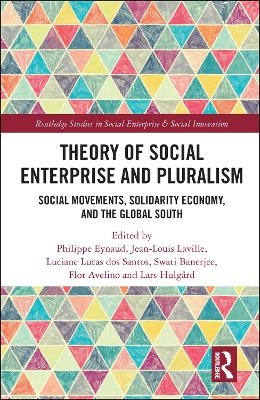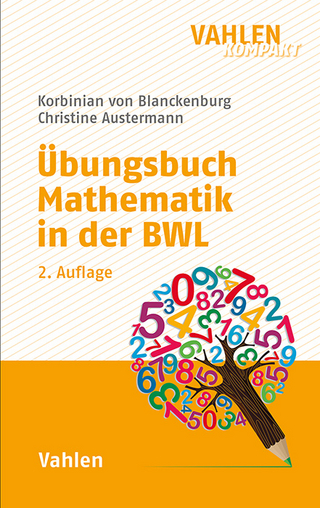
Theory of Social Enterprise and Pluralism
Routledge (Verlag)
978-0-367-26040-8 (ISBN)
In the past decades, social enterprise has been an emerging field of research. Its main frameworks have been provided by Occidental approaches. Mainly based on an organizational vision, they give little or no room to questions such as gender, race, colonialism, class, power relations and intertwined forms of inequality. However, a wide range of worldwide hidden, popular initiatives can be considered as another form of social enterprises based on solidarity, re-embedding the economy as well as broadening the political scope. This has been shown in a previous book: Civil Society, the Third Sector, and Social Enterprise: Governance and Democracy.
Thus, to be more than a fashion or a fictitious panacea, the concept of social enterprise needs to be debated. Southern realities cannot be only understood through imported categories and outside modeled guidelines. This book engages a multicontinental and pluridisciplinary discussion in order to provide a pluralist theory of social enterprise. The book will be of interest to researchers, academics and students in the fields of social entrepreneurship, social innovation, development studies, management studies and social work.
Philippe Eynaud is full professor at Sorbonne Business School, University Paris 1 Panthéon Sorbonne, and a researcher in Gregor. Jean-Louis Laville is professor at the Conservatoire national des arts et métiers (Cnam, Paris) and director of the research programme: "Plural democracy and economy" at Collège d’études mondiales—FMSH, Paris. Luciane Lucas dos Santos is senior researcher at the Centre for Social Studies, University of Coimbra, integrating and co-coordinating the Research Group on Democracy, Citizenship and Law (DECIDe). Swati Banerjee is professor and chairperson at the Centre for Livelihoods and Social Innovation, School of Social Work, Tata Institute of Social Sciences (TISS), Mumbai, and coordinator, Right Livelihood College, RLC—TISS, one of the nine RLC campuses across the globe. Flor Avelino is assistant professor and senior researcher in the politics of sustainability transitions and social innovation at the Dutch Research Institute for Transitions (DRIFT, Erasmus University of Rotterdam, www.drift.eur.nl/). Lars Hulgård is full professor of social entrepreneurship, Roskilde University, and permanent visiting professor at Tata Institute of Social Sciences, Mumbai.
Authors’ Biographies
PART 1: Opening dialogue for a new conceptual framework
CHAPTER 1: Social enterprise: is it possible to decolonise this concept? / L. Lucas dos Santos, S. Banerjee
CHAPTER 2: Rethinking social enterprise through philanthropic and democratic solidarity / J.L. Laville, P. Eynaud
CHAPTER 3: A cross-disciplinary and international perspective / J. L. Laville, P. Eynaud
PART 2: A global approach of social enterprise
CHAPTER 4: Reconfiguring the social and solidarity economy in a Danish/Nordic welfare context / L. Hulgård, L. L. Andersen
CHAPTER 5: The domestic domain within a post-colonial, feminist reading of social enterprise: towards a substantive, gender-based concept of solidarity enterprise / I. Hillenkamp, L. Lucas dos Santos
CHAPTER 6: Reimagining the Social Enterprise through Grassroots Social Innovations in India / S. Banerjee, A. Shaban
CHAPTER 7: The reconciliation between economic and social in the notion of a social enterprise: limits and possibilities in Brazil / G. C. de França Filho, A. S. Rigo, W. J. de Souza
CHAPTER 8: Social enterprise between crime economy and democratic transformation in Southern Italy / E. Bucolo
CHAPTER 9: Why is solidarity-type social enterprise invisible in Portugal? / P. Hespanha
CHAPTER 10: The transformative potential of plural social enterprise: A multi-actor perspective / F. Avelino, J. M. Wittmayer
PART 3: Avenues for further research
CHAPTER 11: Deepening the theoretical and critical debate through North South dialogue / L. Hulgård, F. Avelino, P. Eynaud, J. L. Laville,
Index
| Erscheinungsdatum | 28.05.2019 |
|---|---|
| Reihe/Serie | Routledge Studies in Social Enterprise & Social Innovation |
| Zusatzinfo | 2 Tables, black and white |
| Verlagsort | London |
| Sprache | englisch |
| Maße | 152 x 229 mm |
| Gewicht | 453 g |
| Themenwelt | Mathematik / Informatik ► Mathematik ► Finanz- / Wirtschaftsmathematik |
| Sozialwissenschaften ► Soziologie ► Spezielle Soziologien | |
| Wirtschaft ► Betriebswirtschaft / Management ► Unternehmensführung / Management | |
| Wirtschaft ► Volkswirtschaftslehre | |
| ISBN-10 | 0-367-26040-9 / 0367260409 |
| ISBN-13 | 978-0-367-26040-8 / 9780367260408 |
| Zustand | Neuware |
| Informationen gemäß Produktsicherheitsverordnung (GPSR) | |
| Haben Sie eine Frage zum Produkt? |
aus dem Bereich


